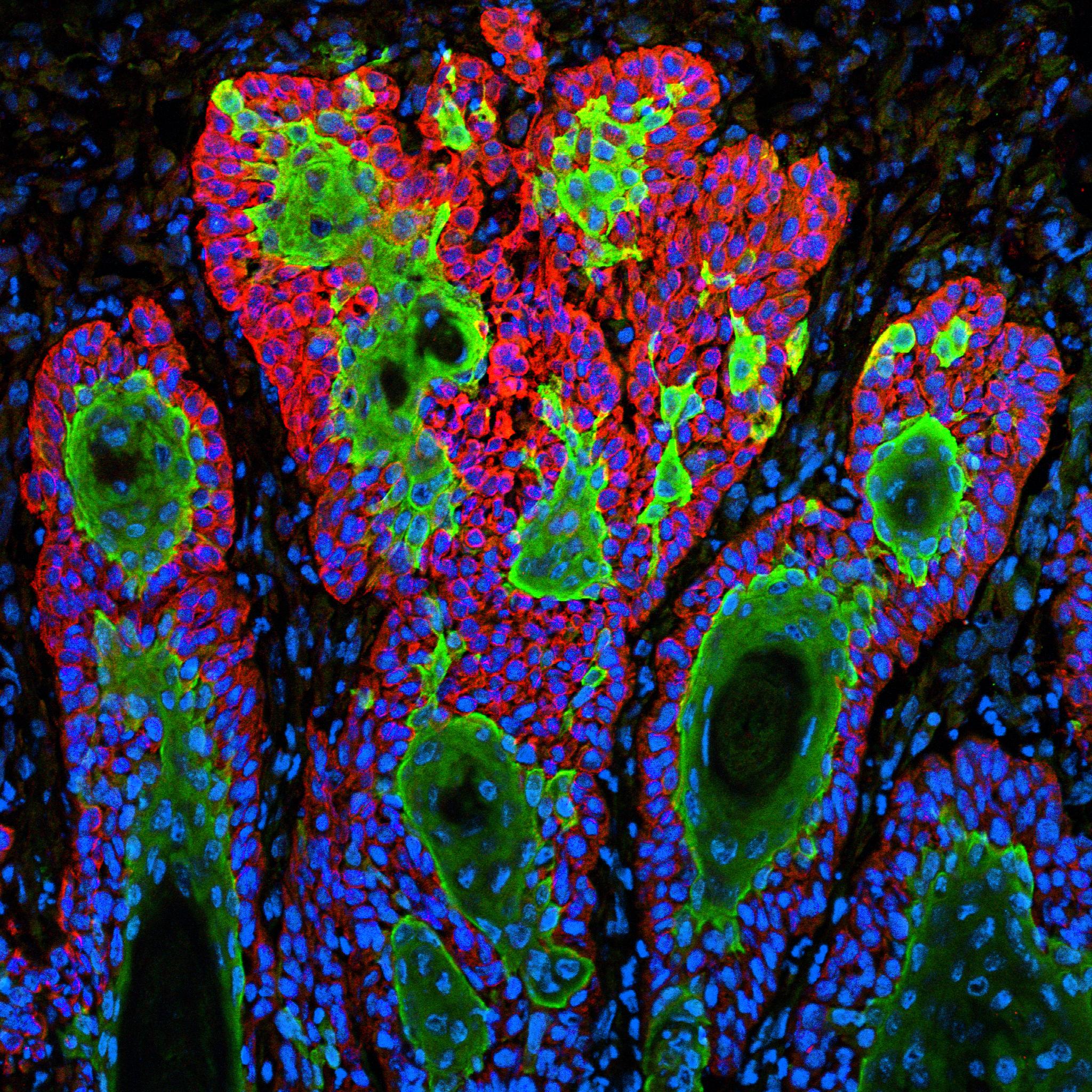
Many chemotherapy drugs kill cancer cells by severely damaging their DNA. However, a DNA repair pathway allows some tumors to survive and introduces mutations that help cells resist future treatment.
Researchers at MIT and Duke have discovered a drug compound that can block this repair pathway. When they treated mice with this compound along with cisplatin, a DNA-damaging drug used as the first treatment option for at least a dozen types of cancer, tumors shrank much more than those treated with cisplatin alone.
An important mechanism cancer cells use to outwit chemo relies on enzymes called translesion synthesis (TLS) polymerases to essentially copy over damaged DNA. The copying is not very accurate, but the resulting mutations are themselves an obstacle to successful chemotherapy.
The Duke collaborators screened about 10,000 potential drug compounds and identified one that binds tightly to one of the TLS polymerase components, preventing a functional polymerase from forming. When the MIT team tested this compound with cisplatin in several types of human cancer cells and in a mouse model of cancer, the combination killed many more cells than cisplatin alone. Moreover, the cells that survived were much less likely to generate new mutations.
The research team includes Nimrat Chatterjee, an MIT postdoc and a lead author of the study, and biology professors Graham Walker and Michael Hemann.
Keep Reading
Most Popular
Large language models can do jaw-dropping things. But nobody knows exactly why.
And that's a problem. Figuring it out is one of the biggest scientific puzzles of our time and a crucial step towards controlling more powerful future models.
How scientists traced a mysterious covid case back to six toilets
When wastewater surveillance turns into a hunt for a single infected individual, the ethics get tricky.
The problem with plug-in hybrids? Their drivers.
Plug-in hybrids are often sold as a transition to EVs, but new data from Europe shows we’re still underestimating the emissions they produce.
Google DeepMind’s new generative model makes Super Mario–like games from scratch
Genie learns how to control games by watching hours and hours of video. It could help train next-gen robots too.
Stay connected
Get the latest updates from
MIT Technology Review
Discover special offers, top stories, upcoming events, and more.